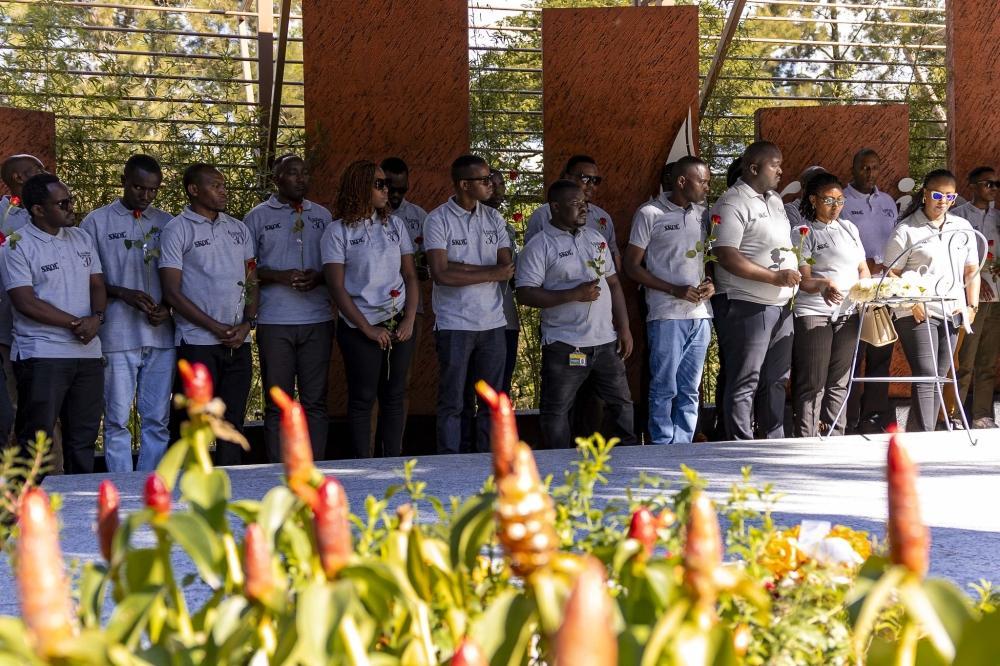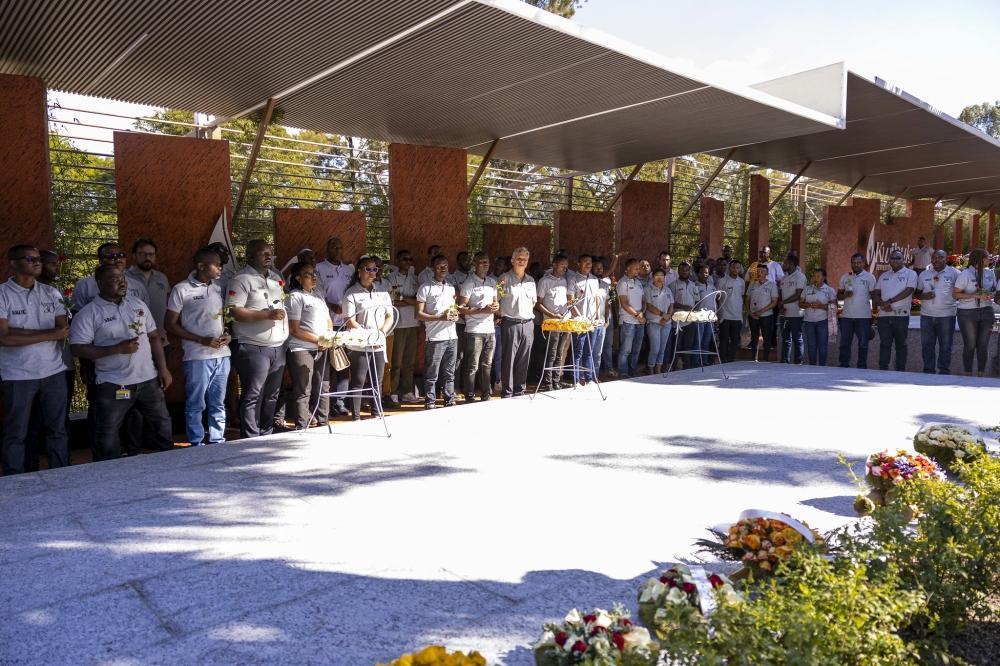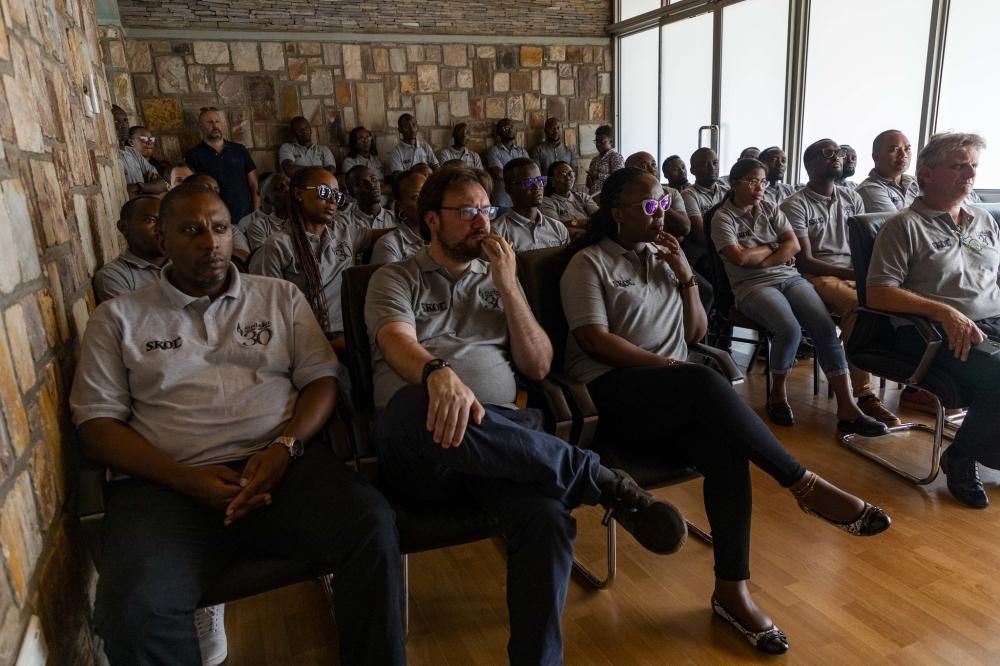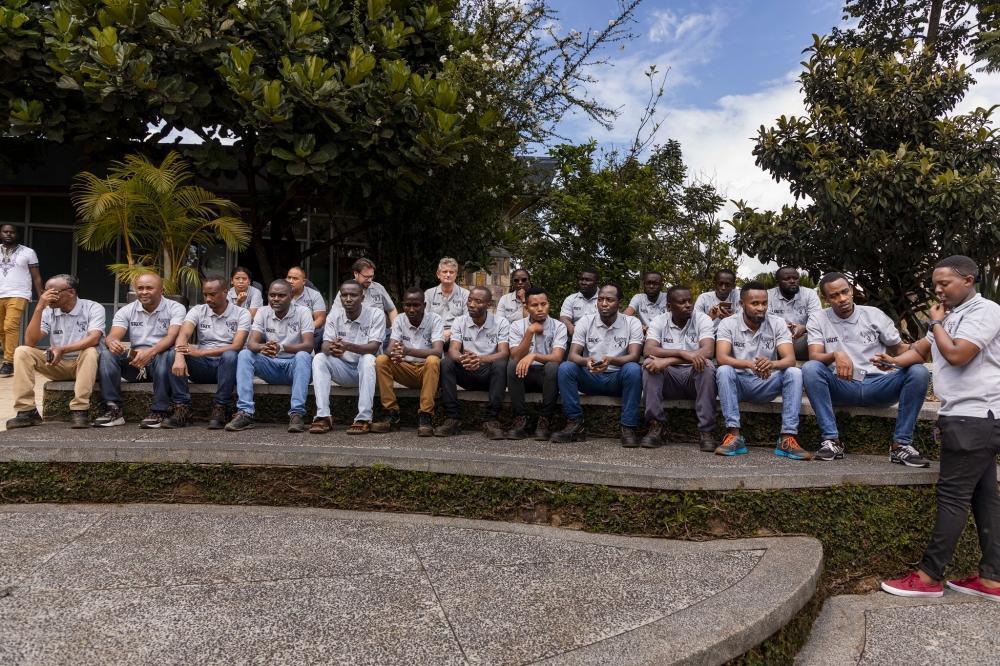Africa-Press – Rwanda. Despite the dark past caused by the shocking 1994 genocide against the Tutsi, Rwanda has a future worth backing, according to the General Manager of SKOL Brewery, Eric Gilson, who underscored the endeavor for preventing genocide recurrence.
He made the observation on Thursday, April 11 as SKOL management and staff visited Kigali Genocide Memorial to pay respects to the Genocide victims.
They toured the memorial components, including the pre-colonial period when Rwandans used to live under peaceful coexistence, the colonial period that divided Rwandans through ethnic lenses, and a post-colonial period that was characterised by a regime that fueled divisionism and discrimination which culminated in the Genocide.
“We shall never forget what happened as it should never, ever happen again anywhere in Rwanda, or anywhere else in the world,” Gilson said after visiting the memorial and laying a wreath on the graves in which Genocide victims are laid to rest.
“We could feel a lot of emotions, again among the staff. Even one of our staff recognised the picture of her father when she was walking through, she was quite feeling bad. And so, we felt a lot of emotions,” he said, commenting on what he observed inside the memorial.
On the main purpose of visiting the memorial, he said that it was meant to never forget, to create unity, “and there was yesterday, there is today, but also there is tomorrow.”
“We believe in Rwanda, we feel very confident about future development. It was also a way to encourage the young people for the future because there is definitely a future in this country and we have to step forward all together,” he remarked.
In her testimony, Alice Mbayiha, a Genocide survivor and a SKOL Brewery employees, said she lost her father during the Genocide and would find ways to skip commemoration period as she was scared of reliving the traumatic experience in the Genocide.
But, in 2020, a lockdown induced by Covid-19 pandemic made her unable to move out of the country during commemoration week, eventually resulting in her participation in the mourning.
“I started [participating in commemoration] in 2020, and continued annually,” she said, adding that a testimony that was given by her former secondary school classmate gave her the courage to confront the horrific past.
For her, visiting the memorial by SKOL Brewery staff and management is an important act of memory.
“There are many colleagues who were born after the 1994 Genocide against the Tutsi, some of them and some foreigners had not yet visited the Kigali Genocide Memorial and did not know in details what occurred,” she said, pointing out that by visiting the memorial, they observed what happened with emotion, and wondered how humans can reach a level of losing humanity to such extent.
Talking about progress made in the last 30 years after the Genocide, Mbayiha pointed out that Rwanda has made great strides, citing an instance where all children have the right to access education thanks to good leadership, and children studying together without ethnic discrimination in schools.
Going forward, she said that Rwandans should attach greater importance to living in harmony and be united as one people, and pull together to build their country, free from discrimination, as it used to be before colonialisation and the 1994 Genocide against the Tutsi.


For More News And Analysis About Rwanda Follow Africa-Press









